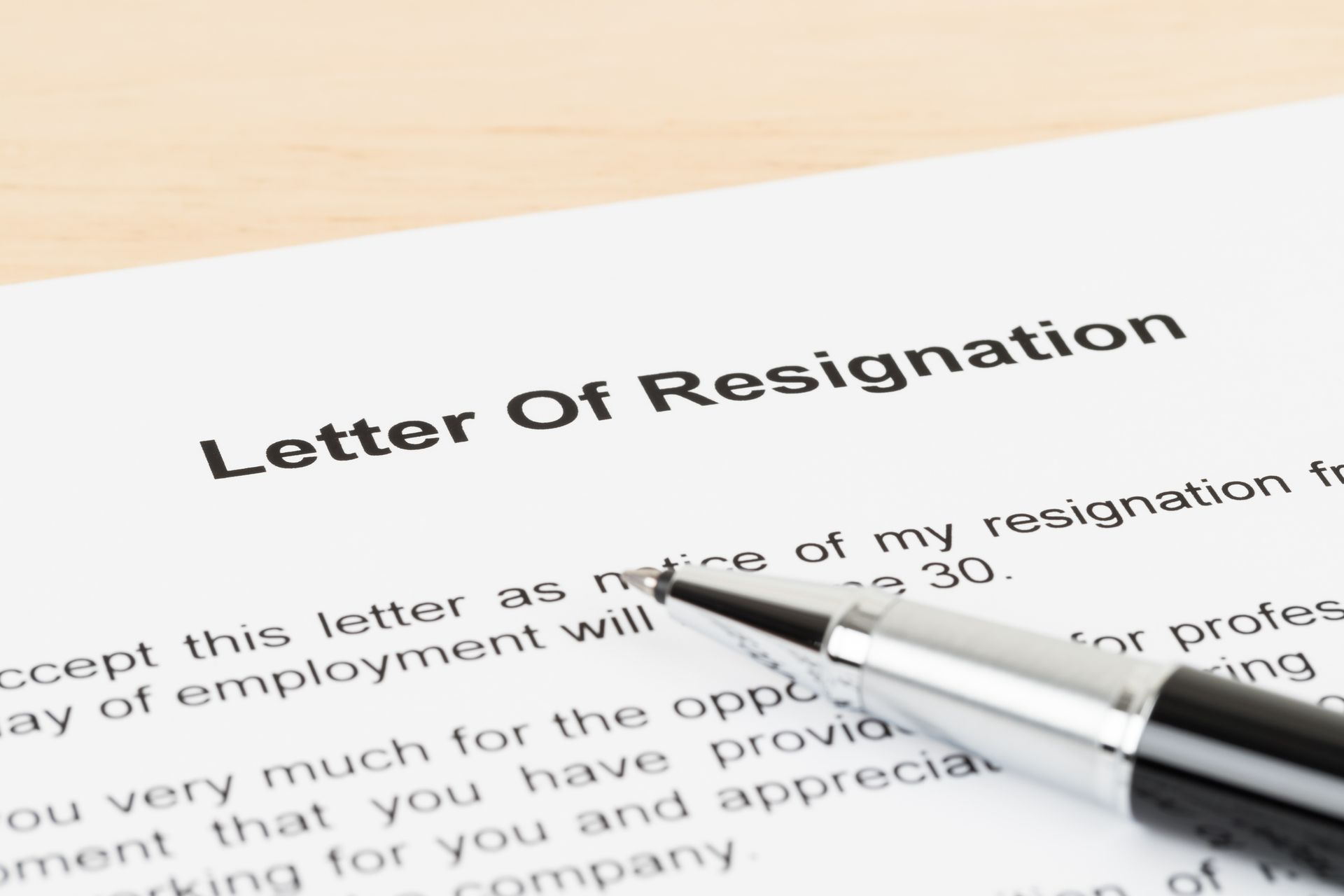Note: this blog was first written in May 2014. It has been updated in October 2025.
Resigning: The Good, the Bad and the Professional
Now that you’ve decided to leave your job, it’s important to consider how you plan to resign. Doing it the wrong way can lead to bad feelings between you and your employer, recriminations or even a bad reference. On the other hand, correct resignation etiquette will contribute to continued success in both your personal and career development.
Some people have a hard time resigning from their current job; they may be good friends with their co-workers or can’t stand the job, the company, and can’t wait to leave. The most important rule to remember when resigning from any job is that you never want to leave on bad terms. Courtesy, etiquette and professionalism go a long way. As much as you may want to tell your managers or co-workers what you think of them, you should never burn any bridges. You never know when you may need them!
Timing is Key
Once you’ve been advised of your new job offer in writing, and you have signed your new contract, you’re ready to advise your current employer of your intention to resign. You should already be clear on the required notice period, as you would have needed to know this to negotiate your start date for your new job (if unsure, refer to your employment contract or ask your HR department).
You should then provide your resignation as soon as possible. Your employer will often appreciate being given the additional notice. Depending on the circumstances of your contract, you may be able to negotiate a shorter notice period, but you should always assume you will be asked to work your full notice period.
Resignation Protocol
Your immediate supervisor or manager should be the first to know about your intention to resign, and should be the person you conduct your resignation meeting with. It is never appropriate to advise colleagues, peers or senior management of your intention to resign, before your immediate manager.
If you are uncomfortable or nervous about resigning, ask for guidance from your HR department, close family or friends, or your recruitment consultant – not your colleagues. Never underestimate the office grapevine.

The Resignation Meeting
Arranging a face-to-face meeting with your manager is always a better approach than simply sending them an email or letter. Prepare in advance how you intend to advise them of your decision and stick to it. Use your written resignation letter, which you should hand to your manager during this meeting, as a guide.
You should expect a reaction from your manager, particularly if you’ve not discussed the possibility of resigning with them before. If the situation becomes emotional, stick to your prepared notes. Focus on being as professional and as composed as possible and try not to take any defensive behaviour personally. Remember, this may come as a shock to your manager.
Your manager may wish to know the specific details of your new situation, which you may not wish to disclose. Remember:
- Don’t be obstructive but make it clear that the purpose of the meeting if for you to submit your resignation.
- Avoid getting into lengthy discussions.
- Emphasise the positives about your current position and company rather than dwell on any negatives.
- Always try to leave the meeting on a good note.
At the end of your resignation meeting, you should ask your manager/supervisor how they wish to communicate your resignation to others, and if they are comfortable with you advising directly. Don’t assume that once you have conducted your meeting and formally handed in your notice, that it’s ok to spread the word. Only when your resignation has been made public knowledge through the appropriate channels, or if your manager has approved you telling others, should you begin to discuss your resignation with your colleagues.
Counter-Offers
It may be that your manager presents you with a counter-offer during or following your resignation meeting. While flattering, these should always be approached with caution.
Research has shown that 70% of employees who accept a counter-offer leave within the next 12 months, proving that the situation doesn’t always improve just because your salary does.1
If you’d like to consider the offer, you should tell your manager you need at least 24 hours to make a decision. Over this time, you should review your reasons for wanting to leave in the first place and if these will genuinely be resolved by accepting a counter-offer.
You should also consider the reasons the counter-offer is being made. While initially it may seem that your employer is taking care of you with a promotion or increased salary, you should also ask yourself why it took your resignation for this to be offered. More money now may be taken of your next pay increase. If the issues are related to your company culture, it will be extremely difficult for your managers to make the changes that may have been promised to you. If you are working with a recruitment agency on your new role, advise your consultant of the situation, as they will also be able to provide you with some advice on the value of the offer.
It is also important to remember that you have already accepted an offer from your new employer. Reputation is everything in business, so understand the impact that withdrawing your acceptance will have on your new employer and your future career.
Writing Your Resignation Letter
Your written notice should be short, polite and to the point. Confirm your intention to leave, refer to the date of your discussion with your manager and the day you intend to finish work. You do not have to detail why you are leaving or where you are going.
Your
resignation letter is not the time to vent and detail what you didn’t like about your current position. It’s never appropriate to make personal attacks on colleagues or management in a resignation letter. Remember, you are likely to need a referee in the future, so don’t burn your bridges.

During Your Notice Period
Some people assume that their responsibility to their current employer ends once they have resigned, and they can spend their notice period taking it easy, using up their sick leave and having long lunches. Think again.
How you behave in the weeks leading up to your employer can have a bearing on your future references and will leave an unpleasant lasting impression of you. Remember:
- You are still being paid and contracted to perform your job to the best of your ability until you leave.
- Make it as easy as possible for your colleagues by completing outstanding tasks and handing over any unfinished work.
- You should also offer to train those who will be taking over your workload.
After your resignation has been made public, you may attract the attention of those colleagues who are dissatisfied with their job and believe you to be a sympathetic ear. Try to avoid this situation, by directing them to discuss their concerns with HR or their manager.
Exit Interviews
Many employers encourage departing employees to complete an exit interview, usually with an objective member of staff, your manager’s manager or a member of HR. During this meeting, the reasons for your departure will be discussed and documented. You may decide to keep your reasons for leaving to yourself, which you are entitled to do, or you may use this as an opportunity to provide constructive feedback on your experience with the company.
The onus here is very much on the word ‘constructive’. It’s never appropriate to make personal attacks on colleagues or management. Overall, by trying to focus on the positives of your time with the company and the contribution you’ve made, you can minimise any unpleasantness during the resignation process and look forward to your new opportunity.
What Next?
Now that you’ve resigned from your job, it’s time to find your next role!
To help guide you through this journey, we have expert career advice to equip you with all the insights and resources you need to navigate the job search and application process. Plus, if you’re looking to refresh your resume, download our free resume template that is easy to use, customisable and suitable for all jobs.
References
- Choy, M. (2022). Why making a counter offer could be the wrong move. SEEK. https://talent.seek.com.au/hiring-advice/article/why-making-a-counter-offer-could-be-the-wrong-move




















